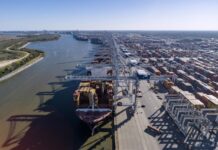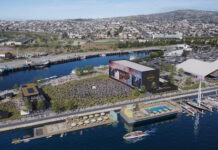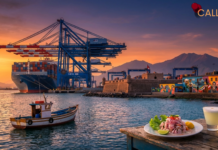
 Martin Crawford-Brunt, CEO, RightShip, a leading maritime risk management and environmental assessment organisation, assesses the potential effects of the pandemic on the safe working of the maritime sector.
Martin Crawford-Brunt, CEO, RightShip, a leading maritime risk management and environmental assessment organisation, assesses the potential effects of the pandemic on the safe working of the maritime sector.
Over the past decade, the shipping industry has made clear, positive steps forward in its approach to safety and risk management. The State of Maritime Safety report published in April 2020 showed that total loss incidents have continued to decline over the last five years, dropping from 0.16% for the world fleet vessel count in 2015 to 0.09% in 2019.
These encouraging statistics are worth celebrating. However, as we face Covid-19, which is nothing less than a transformational challenge for our sector, we must all take steps to ensure that we do not lose the progress we have made to-date.
Covid-19 has brought new attention to our operations. As the shipping industry has continued to fulfil its vital role in the supply chain, ensuring the transportation of food and medicine around the world, we have also seen new celebrations of crews and maritime professionals, all of whom are recognised as rightful key workers.
As this recognition grows, however, crews are facing overwhelming and unique pressures, as global travel restrictions leave them potentially stranded or stuck at sea. Regrettably, this is a complex issue to resolve, but it is encouraging to see industry stakeholders collaborating to raise this critical issue with governments and authorities around the world.
Meanwhile, the protracted and future economic fallout of Covid-19 is causing worrying commercial uncertainties for our sector as global manufacturing levels dropped significantly throughout the first quarter of 2020. According to the latest data from Alphaliner, the start of June saw the idle tonnage of the global container fleet stand at 2.72 million TEU, or roughly 11.6% of the overall fleet capacity.
The combined economic and social impacts of Covid-19 will have a profound effect on all of our behaviour as we look to set the agenda for the next ten years of shipping. No matter the impact, however, we must ensure that safety remains the top priority.
The restrictions enacted by international and governmental health bodies are placing a significant amount of strain on the regulatory framework that our industry has developed and relied on for decades to underpin improvements in safety.
Ensuring a robust approach to safety while weathering the economic impact will be a difficult balancing act for the industry, and one that everybody has a part to play in. This includes the need for ongoing support to the crew through welfare visits, repair technicians and safety inspections. Collaboration across multiple sectors will be essential to ensure that we are not letting our shoreside staff and crews down.
In tandem with enhanced collaboration on safety, as an industry we must be pragmatic in our thinking. This means being flexible and proportionate in the measures we collectively implement to mitigate the risk and ensure a smooth process for the ship operators.
However, we must not let this pragmatism give way to undue leniency when it comes to safety, for example by deferring inspections beyond a reasonable timeframe. If we don’t adopt this rigour now, we will store up innumerable invisible issues for the future that could derail our advancement on safety, as well as impact our recovery.
As the world’s leading maritime risk management and environmental assessment organisation, we understand that RightShip has a key role to play. That is why we have made this mantra – of proportionate flexibility – central to our Covid-19 response. This goes from seemingly small actions, such as clearly following public health guidance and supporting the appropriate provision of PPE, to further tightening the risk assessments that take place prior to an inspection. In some instances, these assessments have resulted in some inspections being relocated to safer locations.
Finally, we are trialling a new process to evaluate inspection extension requests using a risk-based methodology that proportionately balances an ability for a vessel to continue to operate, with an honest appraisal of the short and long-term risks of granting these extensions.
By taking this approach – a balance between pragmatism and realism – we believe that the whole sector will be able to navigate the Covid-19 pandemic and its impacts. Our sector simply cannot afford an increase in the major casualties that led to the creation of RightShip in 2001.
As the commercial impact of Covid-19 continues to bite, it will no doubt be tempting to resort to leniency on safety and risk as a ‘quick fix’ for the immediate problem, but this will ultimately be to the detriment of all of us.
Instead, now is the time for us to work together. When normality resumes, we must be able to say that we navigated these challenges intelligently, by collaborating and didn’t compromise on the safety standards that underpin every commercially successful voyage.




